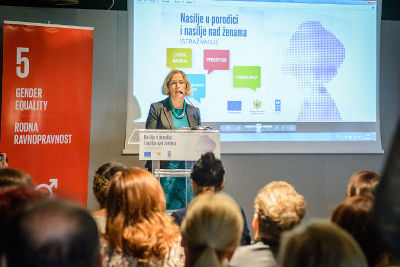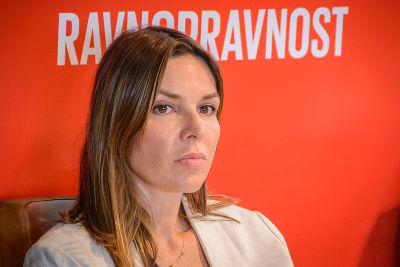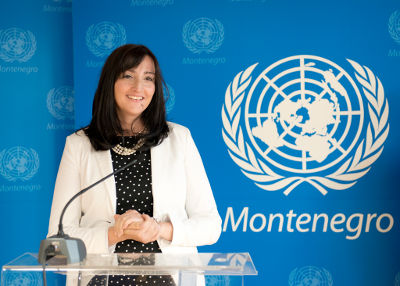The Istanbul Convention as an instrument for tackling violence against women and girls in Montenegro
Date:
It has been seven years since the Montenegrin Government signed the Council of Europe Convention on preventing and combating violence against women and domestic violence – known as the Istanbul Convention – and four years since its entry into force. Under the Montenegro legal system, international laws and treaties, once ratified, are legally binding and take precedence over national laws. But, has the Convention brought any real improvement for women survivors of violence?
The UNDP study on violence in the family (2017)[1] revealed that around half of women in Montenegro have experienced violence at some point in their lifetime, and 1 in 5 women suffered violence during the last year. Family violence costs Montenegro €234 million or 6 per cent of the country`s annual GDP every year.

“When we are talking about one of the most pervasive violations of human rights in the world, one of the least prosecuted crimes, and one of the greatest threats to development, we are talking about violence against women and violence in the family,” says Fiona McCluney, UN Resident Coordinator and UN Resident Representative to Montenegro.
In recent years, there has been an increase in the number of reported cases of violence against women. Last year, the national SOS line received around 3,500 calls, nearly 1,500 cases were reported to the police and Social Welfare Centres managed about 600 cases. Survivors are usually reluctant to take their case to court, and when they do, perpetrators are often given lenient sentences.
The EU–UN Women regional programme, ‘Implementing Norms, Changing Minds’, administered by UNDP in Montenegro, focuses on developing the capacity of dedicated civil society activists, advocates and providers of specialized services for women survivors of violence – in line with the UN’s key priorities for achieving gender equality and empowering women in the country. The programme provided resources and a forum for a coalition of four women’s groups, under the leadership of the Centre for Women’s Rights in Podgorica, to develop a report on the implementation of the Istanbul Convention for submission to the Group of Experts on Action against Violence against Women and Domestic Violence (GREVIO), which is an independent body responsible for monitoring the implementation of the Istanbul Convention.

“NGOs have a key role in monitoring the implementation of the Istanbul Convention. Furthermore, we are key partners in prevention and policy development. Our decades long experience in helping women to reach justice has resulted in a high level of trust from survivors,” says Maja Raicevic, Director of the Centre for Women’s Rights.
Despite positive developments in legal and policy frameworks, the implementation of international commitments to end violence against women remains a challenge. According to the official report for the Commission on the Elimination of Discrimination against Women (CEDAW), presented this year in Geneva, 85 per cent of all reported cases fall under the misdemeanour act and sanctioning is often inappropriate, with a clear pattern of lenient sentencing. In 2016, only 6.8 per cent of the 1,573 cases resulted in prison sentences, and in 30 per cent of cases, perpetrators received fines of only €150. More than 40 per cent of cases were dismissed, for a variety of different reasons, while police used exclusion or removal orders in less than 5 per cent of all reported cases.
“It is clear that more should be done. There are a number of activities being implemented to fulfil the commitments of the Istanbul Convention. NGOs are expected to play a role in all areas of protection and support for survivors, in collaboration with state institutions,” stated Jovana Radifkovic, Senior Adviser to the Ministry of Labour and Social Welfare.

“We want to see close partnership among institutions and women’s groups around specialized services shelters, crisis centres, post-rape care, psychological counselling and free legal counselling. We want to see all responsible institutions joining forces with the NGOs, working closely together to provide support and protection to survivors of violence and help them to reach justice,” reiterated Kaca Djurickovic, Project Manager for the “Implementing Norms, Changing Minds” Programme in Montenegro.
The EU-UN Women regional programme, implemented by UNDP in Montenegro, is working closely with civil society organizations to ending discrimination and violence against women and girls in the country.
[1] The research was conducted within a programme to support antidiscrimination and gender equality policies, funded by the European Union and implemented by UNDP in partnership with the Ministry of Human and Minority Rights.